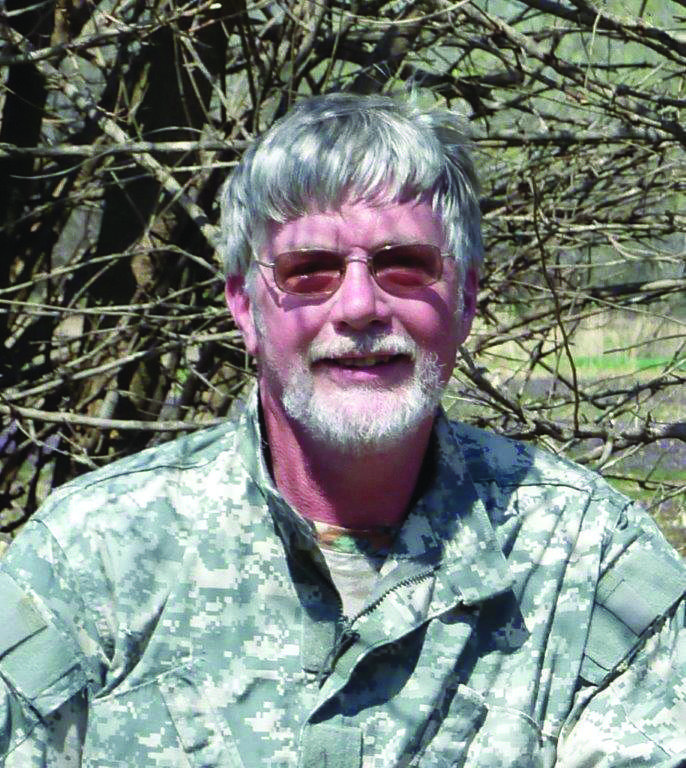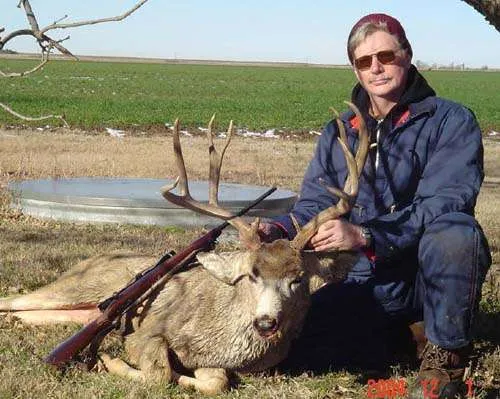A term often used around Christmas and Thanksgiving is “Seasonal Smells,” meaning scents like pumpkin pie, roasting turkey and the scent of pine; pleasant fragrances that we associate with that time of the year. We are entering a time of the year that also has a specific essence associated with it that is not quite so pleasant.
Anytime now, the morning air will possibly begin to smell slightly more “skunky” than usual. Also at this particular time of the year, dead skunks seem to litter the roadside. Welcome to skunk breeding season in Kansas! For our pungent friends the skunks, breeding season begins at the first sign of spring warm up, usually late February and early March. Skunks do not hibernate, but become very inactive during the heart of winter, when a den becomes very important. Communal denning is common during this time, and a dominant male will often share a den with several females during this time leading up to breeding season. Their breeding season is fast and furious, but very short, so keeping oneself close to as many females as possible pays big dividends for male skunks when skunk love is in the air.
All right, so this is skunk breeding season, but I’ve always wondered why that means we smell them so much more than usual. After all, they certainly don’t spray their girlfriends do they? Maybe it’s some kind of ritual mating dance that ends each time with a poof into the air? The answer is simply that at this time of the year, male skunks might roam as far as five miles in one night looking for eligible ladies, and since all male skunks are currently of the same mind, the chances are pretty good males will encounter each other on their quests. And then, just like a bunch of jocks fighting over the cheerleaders after the junior high dance, someone’s gonna’ get sprayed! Figure this happening several times a night for a few weeks with all the male skunks in Kansas and you have the answer.
With that solved, what about the reason for finding so many dead skunks along the road right now? The most obvious part of the answer is simply the fact that all male skunks in the kingdom are draggin’ main street right now lookin’ for girls, so the law of averages says that because of that, some will get flattened. Also, skunks are cocky little buggers and will not back down from anything, period. So that characteristic possibly makes them reluctant to turn and run away from an oncoming vehicle, again, leading to a flattened skunk.
By the way, if you, your dog or your car ever happen to get sprayed directly by a skunk, here is a recipe for a deodorizer that really works, and yes, I know this from experience, and that’s another story in itself: mix together 1 quart 3% hydrogen peroxide, ¼ cup baking soda and 1 teaspoon liquid dish soap (Dawn works well.) Mix this up just before use and don’t save any leftover. Bath yourself or the dog and scrub the car with this concoction. It absolutely works!
Skunks are amazing critters that have amazingly soft, luxurious fur (once you get past the smell) and whose potent, pungent essence is invaluable to the fur-trapping industry as an additive to trapping lures. Trappers who extract the pure skunk “quill” from the animals can expect to get one to two ounces per skunk, and at about $20 an ounce that’s pretty good gas money. Skunk essence enhances and magnifies other fragrances and is actually used in very minute amounts in perfume. Some years back there were rumors that someone was developing an aerosol spray from skunk essence called “Skunk
Power” that could be used by women against an attacker. I couldn’t verify its existence but what a good idea! Native Americans are said to have used skunk oil as a healing balm and liniment; I knew our Native American ancestors were tough, but that fact gives me a whole new respect for them.
So there you have it, a little Pepe Le Pew 101 so-to-speak. When I smell a feed yard here in Kansas I just think of it as the smell of money. Even though I know skunks are yet another example of God’s marvelous and diverse Creation, it’s pretty hard to think that way when the spring air is ripe with the smell of skunk. Continue to Explore Kansas Outdoors!
Steve can be contacted by email at stevenrgilliland@gmail.com





